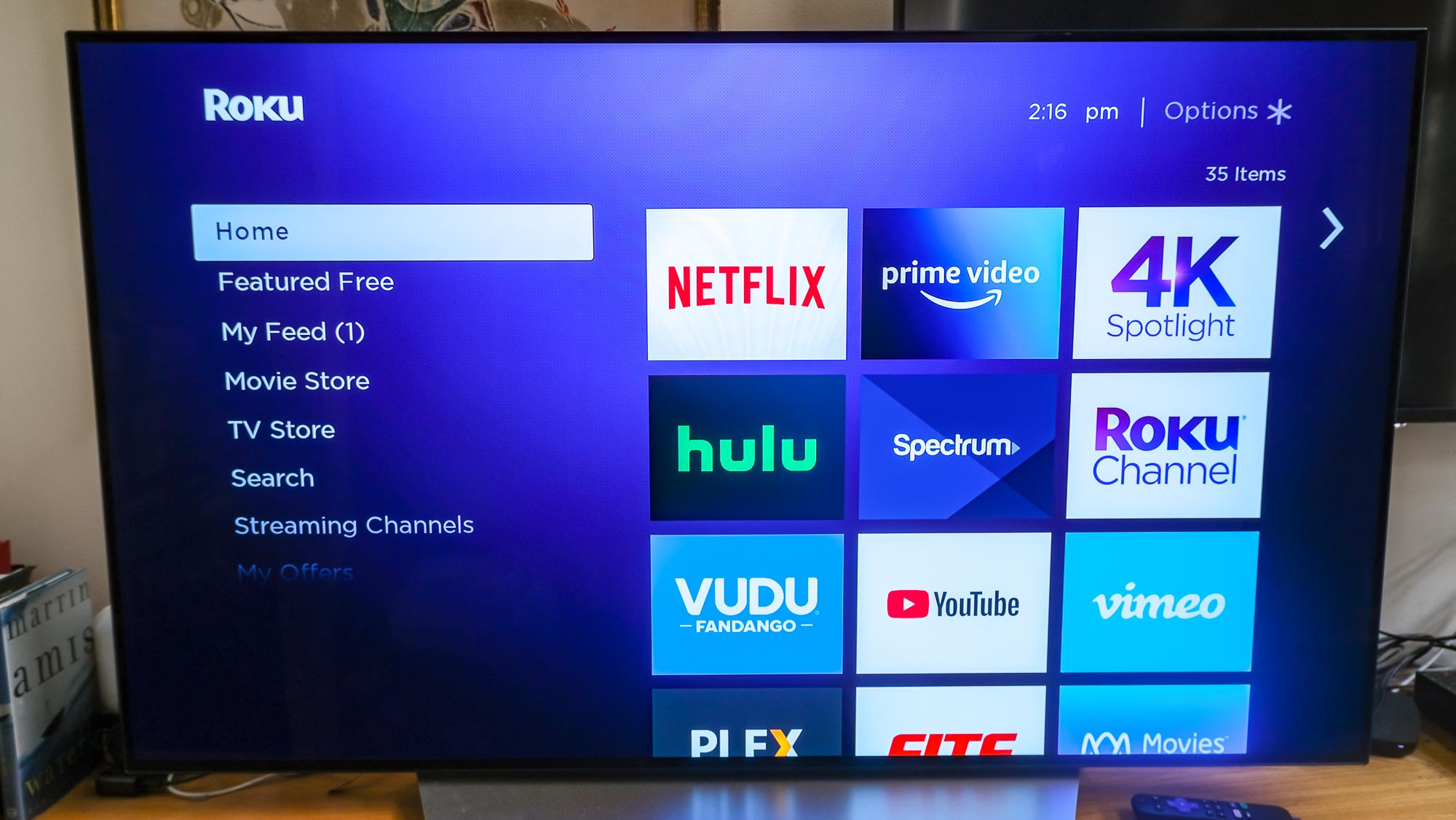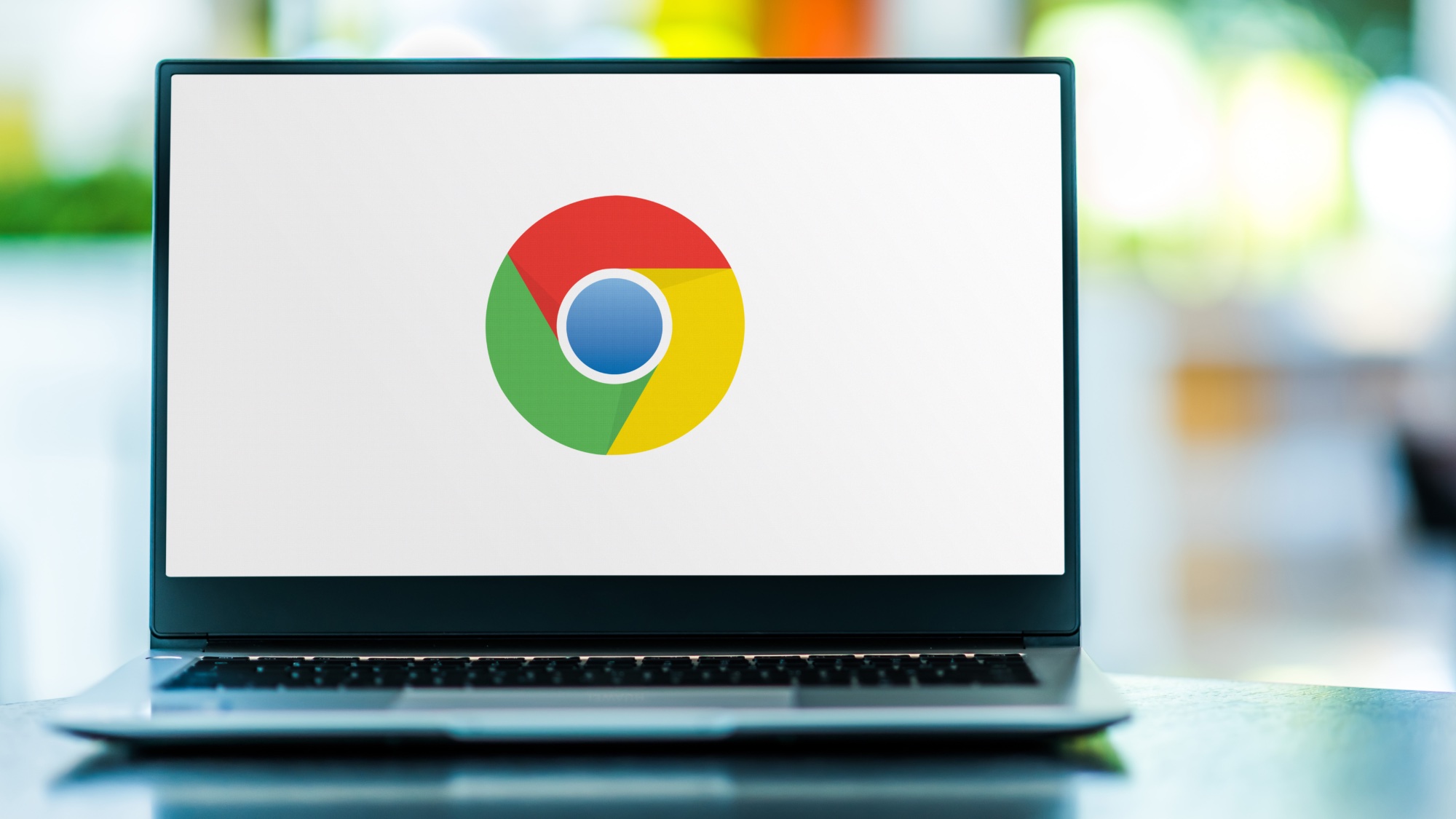Netflix buying Roku would be bad for all of us
Netflix should stay the heck away from Roku

Here at Tom’s Guide our expert editors are committed to bringing you the best news, reviews and guides to help you stay informed and ahead of the curve!
You are now subscribed
Your newsletter sign-up was successful
Want to add more newsletters?

Daily (Mon-Sun)
Tom's Guide Daily
Sign up to get the latest updates on all of your favorite content! From cutting-edge tech news and the hottest streaming buzz to unbeatable deals on the best products and in-depth reviews, we’ve got you covered.

Weekly on Thursday
Tom's AI Guide
Be AI savvy with your weekly newsletter summing up all the biggest AI news you need to know. Plus, analysis from our AI editor and tips on how to use the latest AI tools!

Weekly on Friday
Tom's iGuide
Unlock the vast world of Apple news straight to your inbox. With coverage on everything from exciting product launches to essential software updates, this is your go-to source for the latest updates on all the best Apple content.

Weekly on Monday
Tom's Streaming Guide
Our weekly newsletter is expertly crafted to immerse you in the world of streaming. Stay updated on the latest releases and our top recommendations across your favorite streaming platforms.
Join the club
Get full access to premium articles, exclusive features and a growing list of member rewards.
Yesterday brought news that Roku, best known for making some of the best streaming devices, could be on the verge of being acquired by Netflix. That’s according to an Insider report at any rate.
I love Roku devices. They’ve been my go to streaming hardware for several years now, and both TVs in my home have Roku devices attached to them. Meanwhile, I am less enthused about Netflix, as a whole, and have been for about three years. Having to repeatedly suffer through untimely cancelations of some of your favorite shows will make anyone bitter.
But while I have my problems with Netflix as a service, the fact is I wouldn’t want anyone else popping up to try and acquire Roku either. Doing so would defeat the purpose of what Roku is, and how it sits in the streaming business as an independent platform.
Roku is independent, and that’s where it's strengths lie
Roku has always maintained its position as the neutral third party in the streaming wars. Since it has no close links to any single premium streaming service, there’s little competitive drama that has caused problems on other streaming devices.
For example, back in the days where Amazon and Google were feuding, there was a period of several years where Prime Video didn’t support Chromecast and YouTube wasn’t available on Fire TV. Roku, meanwhile, offered both, and without any of the drama.
That’s not to say Roku doesn’t have disputes, and finds itself in situations where content providers disavow the platform. It took several months for HBO Max to hit Roku, for example. And last year Google seemed all but ready to pull both YouTube and YouTube TV from the platform.
In the case of HBO Max, the dispute was reportedly down to haggling over subscription fees. With Google, Roku claimed that Google was demanding special treatment, allegedly asking for search, voice and data features other TV platforms weren’t required to offer.
Get instant access to breaking news, the hottest reviews, great deals and helpful tips.
Essentially, Google is alleged to have demanded Roku prioritize YouTube content over other platforms, which would go against that whole ‘unbiased’ approach. Google denied this, and a deal was eventually struck at the 11th hour.
That approach to its platform means Roku has a fairly clean interface, beaten only by the minimalistic styles of Apple TV. Roku does show ads, and I’d be lying if I said it wasn’t a little pushy with promotions for its own service, the free-to-watch Roku Channel.
But it all pales in comparison to the likes of Amazon’s Fire OS, which is constantly pushing people towards content Prime Video and Amazon’s digital storefront. Plus, Roku offers devices that are significantly cheaper than Apple TV. The Roku Express 4K Plus is just $40, while the cheapest Apple streamer is the $149 Apple TV HD. And Roku doesn’t have a history of horrible, unintuitive remotes.
Netflix buying Roku would destroy what makes it great
It’s obvious why Netflix would want to have a platform like Roku. The company doesn’t have its own hardware, and relies on third parties to ensure people can access the platform. It’s not the only company in that position, but you can understand why it might want to follow the likes of Google and Amazon into the world of low-cost streaming hardware.
It also can’t be a coincidence that these reports have come about a few weeks after Netflix announced plans to launch an ad-supported tier. Roku is partly supported by advertising, and purchasing a company that already has a foot in the world of ad sales would save Netflix the trouble of starting from scratch.
Netflix would similarly gain Roku’s small, but not insignificant, library of original content. That includes content purchased from the now-dead Quibi and the upcoming Weird Al biopic.
But any potential gain for Netflix would be to Roku’s detriment. We can’t be sure what Netflix has planned for Roku, if it is even prepping for a takeover at all. But coming in and having a major company takeover would spoil the main thing that makes Roku so special in the first place.
Even if Netflix did keep the Roku interface as clean as it is today, the fact Netflix is at the top could easily pose problems.
Roku may have the Roku Channel, and a small collection of original content, but it is still firmly a minor league player. Netflix is almost single-handedly responsible for popularizing the modern streaming landscape, and dominated the industry for the past decade.
Throw it into the loop and suddenly the other big names might not be as interested in playing nice with Roku. As it stands right now, the channels know what they’re getting when they partner with Roku: A platform to distribute their content to millions of users, without giving a boost to a serious competitor. Having one of those competitors at the top turns the whole thing on its head.
Netflix should stay the heck away from Roku
There are a lot of reasons to like Roku. It offers great streaming hardware, at low prices, and offers a solid platform that makes it easy and painless to access virtually every streaming service out there. And if you’d rather skip streaming boxes for a proper smart TV, the best Roku TVs give you that same experience right out of the box.
But that stems from the simple fact that Roku is an unaffiliated platform. Take that away and it becomes no different to Fire OS or Google TV, with a big company at the top that’s always going to want to prioritize its own content over everyone else’s.
A post-takeover Roku may stay the same, maybe even for several years. But that doesn’t change the fact a takeover would almost certainly mean a fundamental shift in Roku’ status amongst streaming services, and honestly I can do without that. I’d rather Netflix stay the heck away, and let Roku continue with what it’s been doing — because it’s doing it well.

Tom is the Tom's Guide's UK Phones Editor, tackling the latest smartphone news and vocally expressing his opinions about upcoming features or changes. It's long way from his days as editor of Gizmodo UK, when pretty much everything was on the table. He’s usually found trying to squeeze another giant Lego set onto the shelf, draining very large cups of coffee, or complaining about how terrible his Smart TV is.
 Club Benefits
Club Benefits










